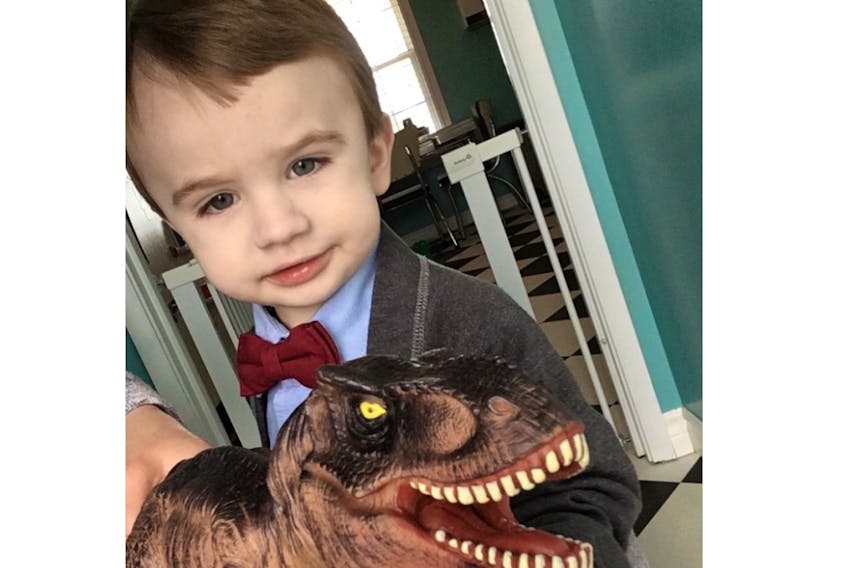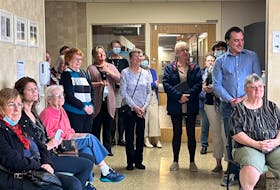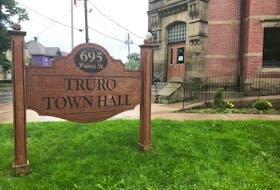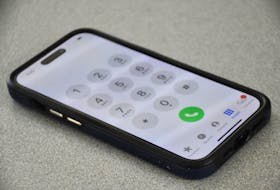FORT ELLIS, N.S.
Without blood donors, three-year-old Eric Giles wouldn’t be here today.
“You wouldn’t know there was anything wrong with him now, but we have to be careful because his immune system is weak,” said his mother,Michelle. “He’s just starting vaccines.”
The Fort Ellis boy was born with a rare condition called HLH – hemophagocytic lymphohistiocytosis – in which certain white blood cells attack other cells and damage organs. He required bone marrow transplants and blood products.
“He needed blood products more than 50 times,” said his mother, Michelle. “Without just one of those he wouldn’t be here. He survived because someone gave. People we don’t know saved his life.”
When Eric was two-and-a-half months old, he had a persistent fever. After blood work was done at the IWK Health Centre in Halifax, they knew something serious was wrong. Within a week, HLH had been diagnosed.
“The only cure is a bone marrow transplant, but he had to go through eight months of chemo, and take steroids, first,” said Michelle. “They put a central line in and he got transfusions through there, but I could tell by the look on his face that the chemo made him feel pretty crappy.”
It took three bone marrow transplants before a big change was noticed in Eric’s health. The last one was over a year ago, and he hasn’t needed blood products for several months.
Her experience with Eric has spurred Michelle to become a regular donor.
“I never gave blood before, and didn’t think about it a lot, but now I know how valuable it is to give,” she said.
“I imagine how much panic there would be if the blood wasn’t there. They just called and it was there, in the bank. Knowing it was there was the only comfort we had.”
Canadian Blood Services will be holding a blood donor clinic at Immanuel Baptist Church Hall on
Nov. 14 and 15 from noon to3 p.m. and 5-8 p.m., and on Nov. 16 from 9 a.m. to 1 p.m. Appointments can be booked by downloading the GiveBlood app or at https://www.blood.ca
The story on HLH
HLH can be inherited or acquired. When it occurs in children, it is usually because both parents
are genetic carriers.
In adults, it can be caused by conditions such as infections and cancer.
It causes certain white blood cells – histiocytes and lymphocytes – to attack other blood cells. The abnormal blood cells also collect in the spleen and liver and cause the organs to enlarge.
Symptoms can include persistent fever, rash, enlarged lymph nodes, anemia, jaundice, respiratory issues, seizures, and low white blood cells.










